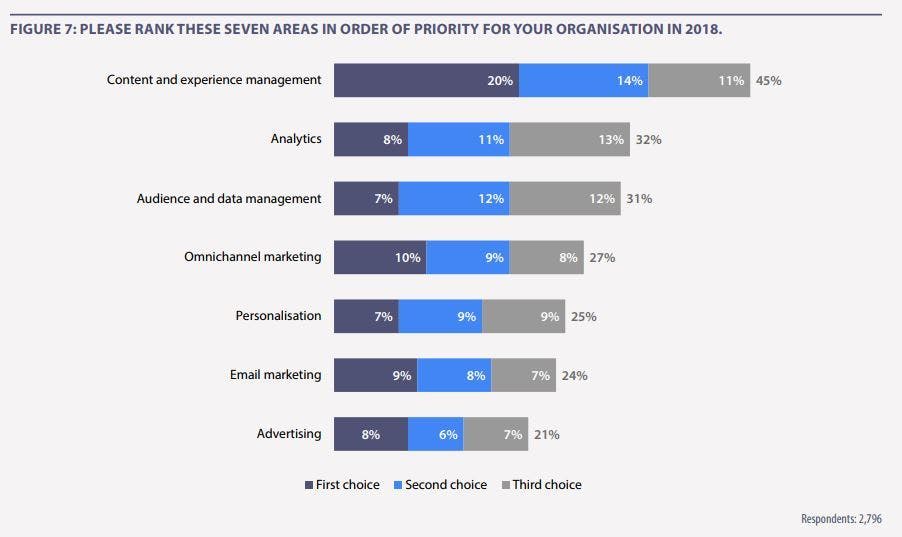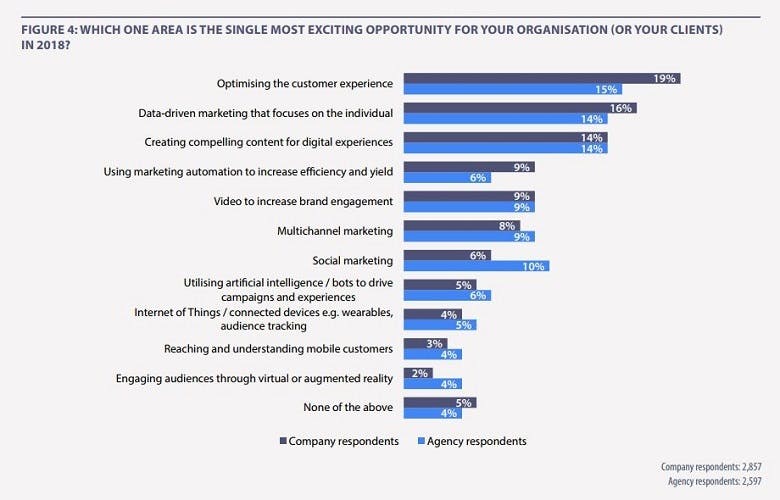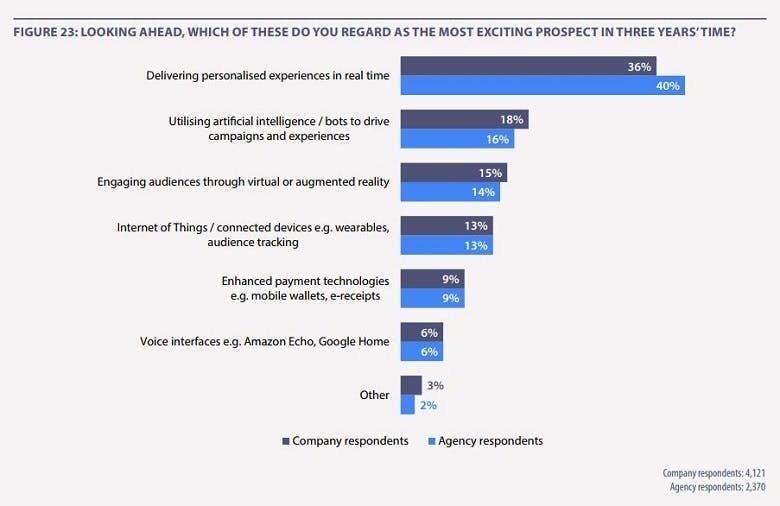So, what exactly are they doing, and what are the top digital priorities for the year ahead? Here’s a few key findings and charts to consider.
45% cite content and experience management as their top priority
In terms of strategic priorities, 45% of companies cite content and experience management as their number one, demonstrating the importance of ensuring effective interactions with customers across multiple touchpoints.
This also looks to be a key differentiator. Top-performing companies are 50% more likely than their peers to have well-designed user journeys that facilitate clear communication and a seamless transaction. (69% vs. 46%).
With analytics and audience and data management coming next on the list of top priorities, the importance of a strong foundation in data and analytics is evident. Ultimately, content and data need to work in conjunction for effective digital experiences to occur.

Data-driven marketing increasingly seen as exciting opportunity
In 2018, optimising the customer experience once again came out on top as the single most exciting opportunity for organisations. While there has been a drop in the proportion of respondents citing this since 2017 – down from 22% to 19% – this doesn’t necessarily mean that CX has become less important.
Companies appear to be more focused on specific opportunities which also feed into the overall customer experience. Data-driven marketing, for example, is up from 12% in 2017 to 16% of marketers in 2018 who see this as the most exciting opportunity for their organisation.

Interestingly, companies that display a cross-team approach to improving customer experience are nearly twice as likely as their peers to be exceeding their business goals (20% vs. 11%).
Top performing companies twice as likely to be using AI for marketing
Finally, with a constant stream of new innovations on the horizon, it can be difficult for marketers to know where to focus and invest. However, getting this right can be the key to success.
When asked about the themes and technologies companies are most excited about in the next three years, the most popular choice was ‘delivering personalised experiences in real time’. 36% of company respondents and 40% of agency respondents chose this option.
This means that, while big trends such as virtual reality are on many marketers’ radar (15%), the majority remain fixed on delivering against core objectives, namely on serving customers with relevant and personalised content and messaging at key moments and touchpoints.
That’s not to say that some technologies aren’t emerging as differentiators. Artificial intelligence is one tool that is helping companies provide more compelling real-time experiences. In fact, top performing companies are more than twice as likely to be using AI for marketing (28% vs. 12%).
There’s still resistance, however, with 41% of marketers citing a lack of knowledge, 38% citing resources, and 25% citing immaturity as barriers to integrating AI into their marketing mix.

Don’t forget, subscribers can download the 2018 Digital Trends report in full now.

Comments